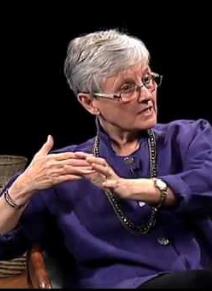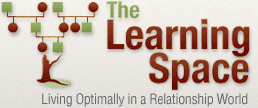Priscilla J. Friesen, LICSW
Priscilla J Friesen was introduced to Bowen family systems theory in l976 while studying for a Master’s of Social Work at the University of Kansas. The theory described her life experience. She moved to Washington, DC, after graduate school in l978 to study with Dr. Murray Bowen, the originator of the ideas. Working in numerous teaching, training, and administrative capacities, Ms. Friesen has been associated with the Bowen Center for the Study of the Family (formerly Georgetown Family Center) since that time. She is presently working with the Murray Bowen Archives Project and the National Library of Medicine to make the Bowen Archives “available to the world.”
In the fall of 2005, Ms. Friesen founded The Learning Space with Regina Carrick and Glennon Gordon.
Ms. Friesen’s professional and personal interest has been in the interplay of the brain, physiology and relationships. Guided by the framework of Bowen theory, Ms. Friesen has interwoven self-regulation methodologies, including Biofeedback (a method to develop self-regulation through awareness of physiology, such as muscle tension, heart rate, and hand temperature, allowing one to see the impact of thought and emotion on physiology) and Neurofeedback (offering real-time information about central nervous system/brain wave functioning, affecting the way the brain organizes perception, emotion, and learning) into her work with individuals, couples, families, and organizations and in her teaching.
In 2000, Ms. Friesen began using Zengar neurofeedback. Conceptually based in the brain-as-a-system using non-linear mathematics to promote the basic efficiency of the brain system, Zengar has affected how she works. It is now central in the consultation process of addressing chronic anxiety and being more of a self in essential relationships, the central idea in Bowen theory.
Through other fields of knowledge, applied kinesiology, sensory integration, Brain Gym and reflex integration, Ms. Friesen has experienced how the physiology, the senses, and reflexive integration is built into our personal adaption throughout our lives including the multigenerational family process that sets the stage.
An intermittent yoga practitioner since the l970s, Ms. Friesen has experienced the organization of her body and its connection with life experience. Different traditions of yoga develop subtle observation of the physiology of movement, breath and focus that are central to self-regulation. Svaroopa yoga, her present practice, focuses on the release of the spine, which addresses patterns of chronic anxiety developed over one’s life course.
Experience with mindfulness meditation, contributed to a deeper awareness of subtle levels of the breath, body, emotion, thought, and perception. This study expanded her ability to coach others in their use of neurofeedback as well as in the study of one’s self in relationships.
Ms. Friesen has expanded her understanding of essential emotional beliefs developed over a lifetime that influence thought, emotion and behavior in every moment through the study of the I Ching. The I Ching is an ancient method used to understand and guide one through the human experience.
 Priscilla J. Friesen, LICSW
Priscilla J. Friesen, LICSW
For reviews of Ms. Friesen’s Clinical Conferences see:
- The Family Brain and Neurofeedback
- Differentiation of Self and Neurofeedback
- Emotional Beliefs, Differentiation of Self and Neurofeedback

It is this tapestry of experience within the conceptual framework of Bowen theory that is the basis for The Learning Space. The Learning Space provides opportunities to promote optimal learning for individuals, families and organizations.

